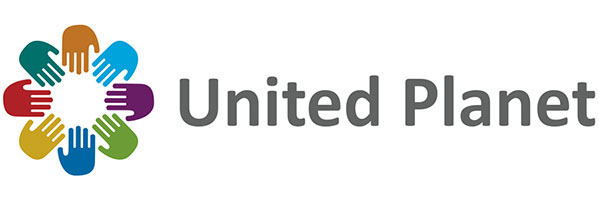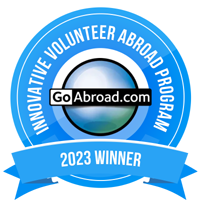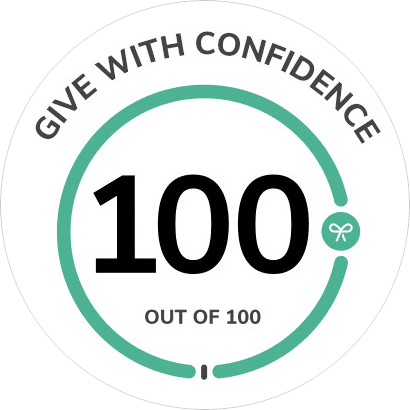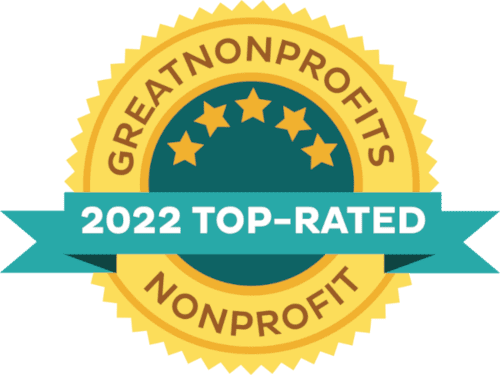“That’s what we wanted to do – come and be able to do something for somebody.”
This from Alisa, after the group of nursing students from Mesa State College had spent the week in three healthcare projects across Quito. But she wasn’t referring to the days in triage, or OB, or cardiology, or pediatric oncology, or giving vaccinations to babies… These things they did, and they served and learned a lot.
She was referring to an afternoon in a childcare project in the south of Quito, one of the poorest barrios in the city. The center provides care and meals for 40 – 70 children, ages two to 12, who need attention; their families are missing fathers, or struggling with alcohol and drug problems, or suffering from disabilities. Many single moms drop off their kids while they cobble together work – selling food on the streets, cleaning. The center is jumping with life, but existing on a shoestring.

The lovely and charming Alisa, who has five kids of her own, brought loads of clothing for the kids in the center.
For weeks, the nurses gathered together the things they believed were needed: many of them mothers, they brought bags of used clothes, shoes, toys. They bought games, puzzles, markers, paper. Before they arrived, they were assigned families – they selected the right clothes for the kids’ ages and genders, learned about their history.
That afternoon, the directora, another (!) vibrant, efficient, smart Ecuadorian woman dedicated to getting things done for her kids, introduced the nurses to the kids in the families, and sent them off to their houses.
In one family, the mother had come from Peru, and was illegal, so she couldn’t get legal work; the father had died. The kids went to school during the morning, then came to the center in the afternoon. (Lucky not to be working on the street themselves.) During summer break, the kids spend the whole day.
The nurses followed the kids to their home: a tiny, cramped, dark room in the basement of a building. The kids were pleased to show off their home, to test the nurses’ cameras, to run around in an excited clump, to get and give hugs and attention. The nurses asked about their lives, offered the clothes, played ring around the rosie, spread laughter.
These kids are lucky in many ways: they don’t have to work the streets themselves, they are clean and dressed and not hungry, their home is well-kept, they have access to water. They have people who care: their mothers, and the people at the center. Everywhere, you can see kids not so lucky: walking amidst cars at stoplights, selling gum, snacks, drinks; sleeping on basketball courts; lurking around the edges of public spaces.

At another center, the kids come in from life on the streets.
Next, to the home upstairs – in a storefront on the street. The bunk bed is in the middle of the liquor store, which is open early in the morning when the mom is home, and late at night. When she leaves, they lower the metal grates over the door and window, and the room is plunged into darkness.
We crawled under the door grate and poked around in half light.

“It was like nothing I’ve ever seen.” Here’s the wonderful Sue inside the girls’ home.
At the other home, the nurses who visited stopped for groceries before they visited: eggs, bread. They were glad the family, which suffers from HIV and unemployment, didn’t take offense at the gesture.
Back at the center, the air crackled with emotion and shock and relief. Some broke down in tears, others met with the directora to see what more they could do.

Mickinsie with a mob of kids, glad for the nurturing attention (and chocolate cake!).
What more turned out to be a simple cash donation.
The center had an unexpected water bill of $600; the group had an unexpected surplus of $200, which they decided on the spot to donate. (The nurses had gathered boxes of medical supplies from Project Cure, and planned on paying the airline $30 to carry each box. They got a donation from the Colorado Nurses Association to cover the cost; but when they arrived at the airport, the fee was waived because it was a humanitarian mission.)
They were delighted to find a simple, direct need to meet.

Center is Paula, the directora of the center, holding the donation from the nurses to cover the water bill.
“It’s been an absolute joy to be down here,” said Maria, another mom.
Have I mentioned how great the nurses are? How great the director is?

Nurses measured all the kids before they saw the visiting pediatrician, who’s also Pablo’s brother.
And, now to what else they did that day:
- Pablo’s brother, a pediatrician, came to check out the kids in the center that day. The nurses did the intake on each kid: measured height, weight, asked them age and name, then sent them into the doctor.
- The nurses donated their daily lunch fee to buy chocolate cake for the kids, and themselves had pizza.
- They played for a long time with kids of all ages.

Ecuadorian people are so affectionate and warm…
Volunteering is a precarious business: some days you know that you can’t even begin to tip the balance toward good: better nutrition, safety and security, clean water, healthcare. And then some days, you touch someone directly, make a difference in their lives, and feel the power of the direct connection to human life.
The nurses, so warm and caring, so eager for human connection, forged bonds in instants that will last a lifetime. In such a short time, they left a wake of good will, improved health, medical supplies — and so much more.
Gracias to everyone!
ABOUT UNITED PLANET
United Planet is a non-profit organization with a mission to create a global community, one relationship at a time. Established in 2001, United Planet offers volunteer abroad, virtual internships, internships abroad, gap year volunteering, and global virtual exchange in more than 40 countries.




